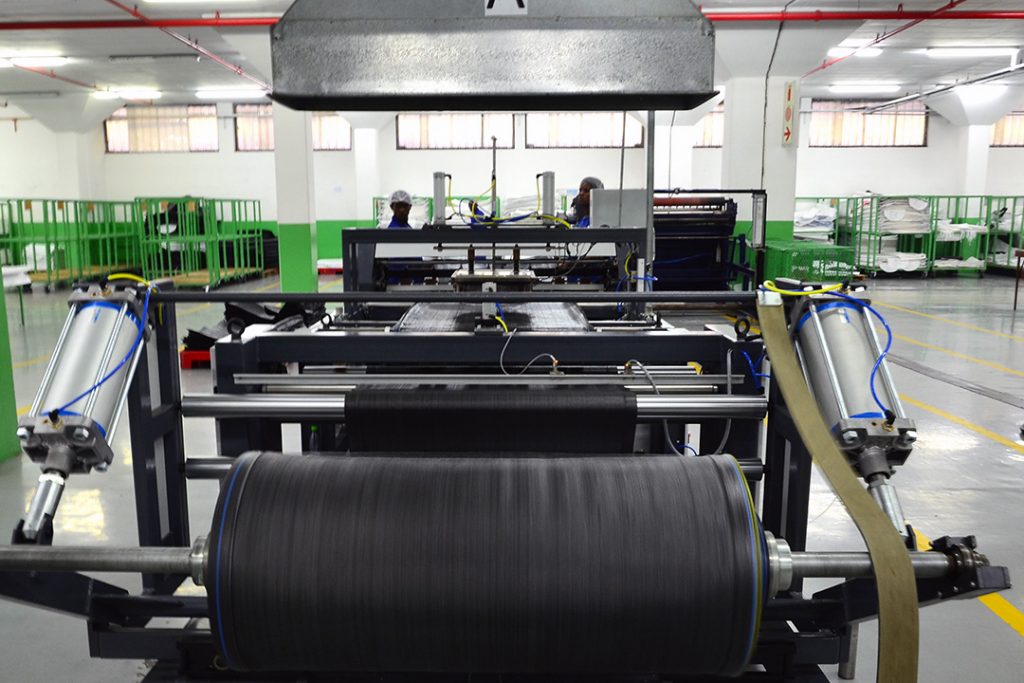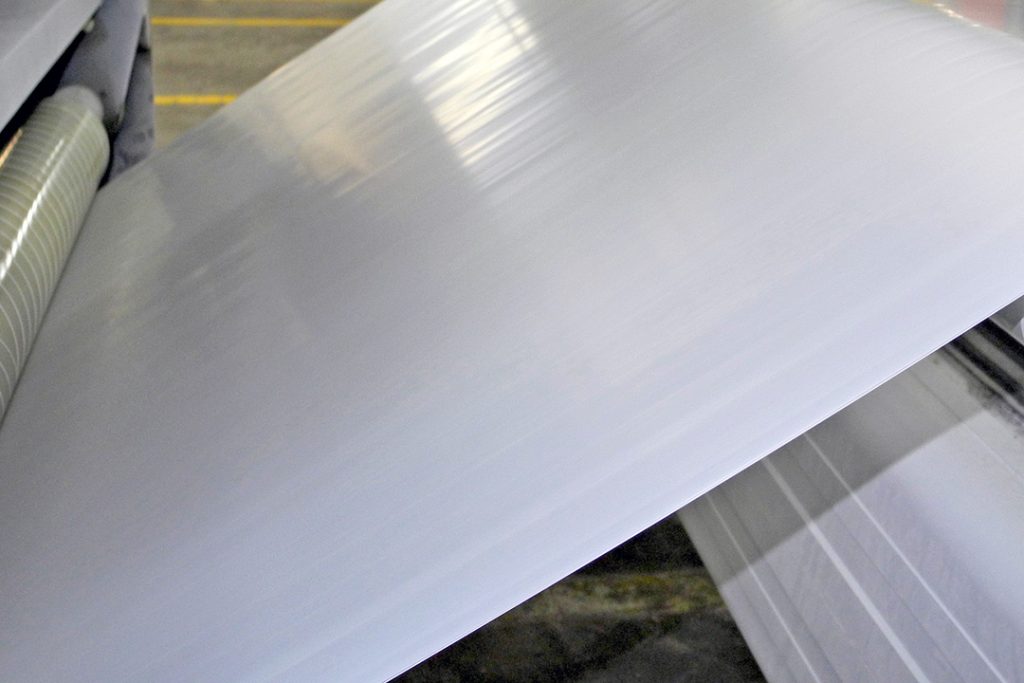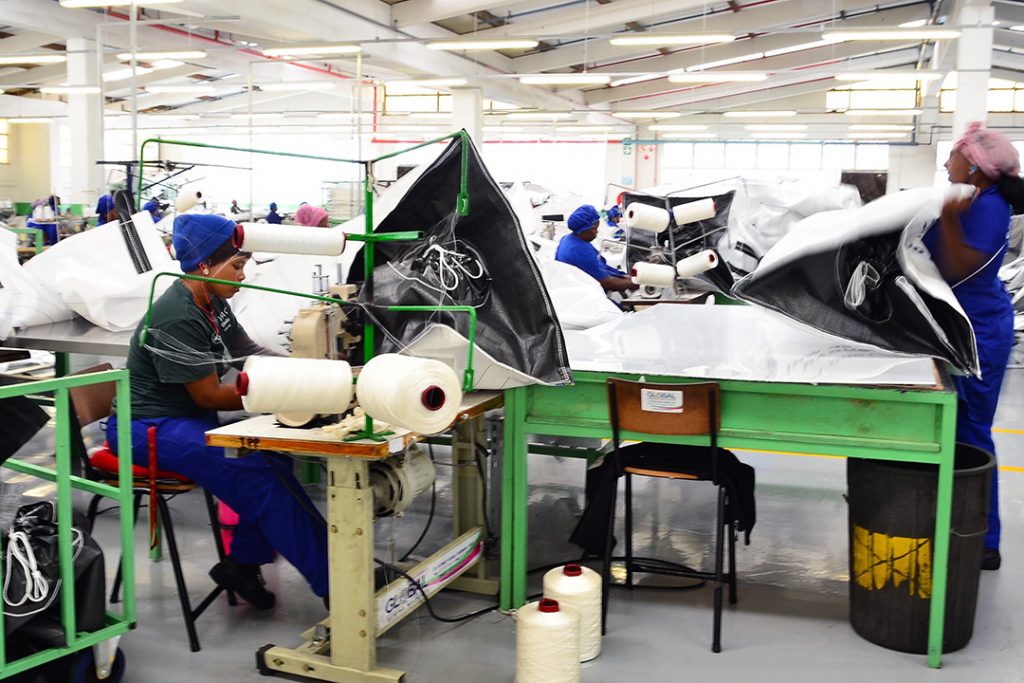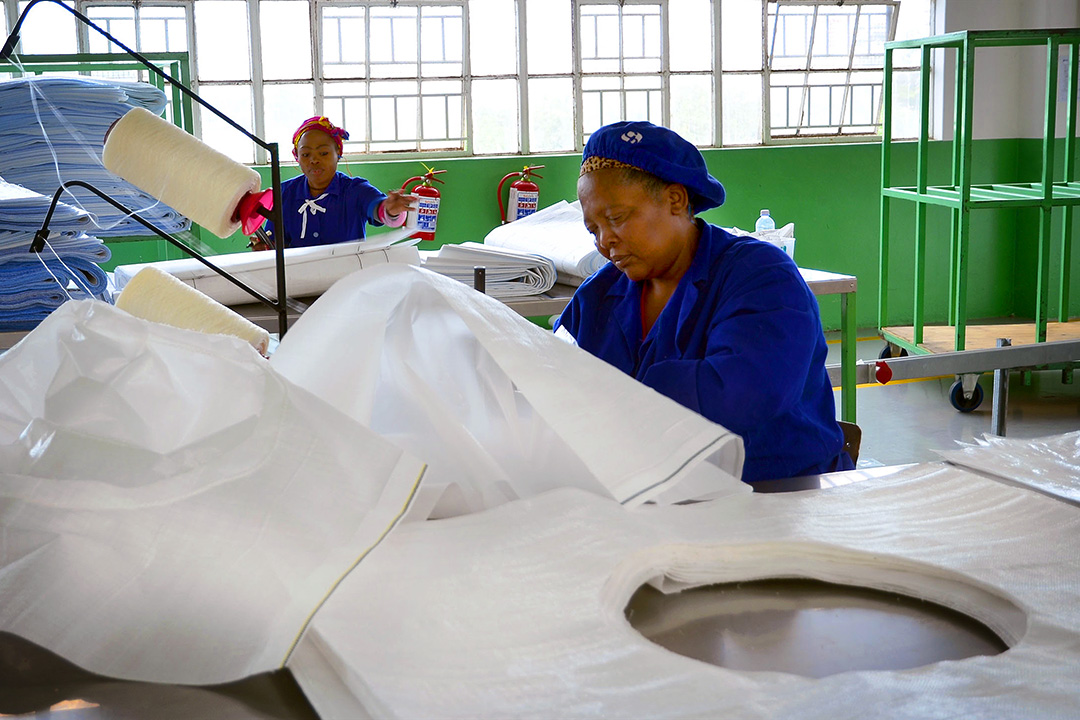It’s important to source the right bulk bag for your product. There is a common misconception that food-grade and feed-grade bulk bags are the same, but there are some important differences to consider. Both types of bags can be used for edible products, but food-grade bags are designed for products destined for human consumption, while feed-grade bags are intended for animal products.
Food can be contaminated by external factors and the food industry needs to fulfil official health and safety requirements. Food-grade bags must adhere to manufacturing regulations in order to be used for the storage and transportation of food-grade substances.
Custom Bulk Bags is here to help you choose the right flexible intermediate bulk container (FIBC) for your products. We have expert knowledge on food-grade certifications and can help you select the right bag for your needs. In addition, our products can be ordered to specification and we offer various optional extras that will suit your needs. Let’s look in more detail at these two types of bulk bags.
What are feed-grade bulk bags?
Feed-grade bulk bags are designed to store and transport animal products. This includes food for domestic animals, agricultural livestock and even zoo animals. Grain-based livestock feed and dry pet food can be shipped and stored in feed-grade bags as these are more cost-effective than food-grade FIBCs.
Feed-grade bags do not have to meet the same safety standards as the bulk bags which hold products for human consumption. This helps to keep costs low, as the bags can be manufactured in less strict hygienic environments. In addition, recycled materials can be used in the production of feed-grade bags. As such, these FIBCs are not certified to be used with goods that humans will consume.

What are food-grade bulk bags?
Food-grade bags can be used to store and transport perishable goods, such as legumes, grains, salt, sugar and spices. Food-grade bags need to be certified by a recognised authority in order to meet the health and safety requirements for safe human consumption.
When packaging comes into direct contact with food, there is the possibility for contamination and spoilage to occur. Food safety standards ensure that there is a limited amount of contaminants, such as mold, that is contained within the packaging.
In order to keep contamination to a minimum, food-grade bags are manufactured with 100% virgin polypropylene resin. No recycled material can be used because it is mandatory for food-grade FIBCs to be as hygienic as possible. The use of virgin plastic is a key difference between food-grade and feed-grade bags and is one of the reasons why food-grade FIBCs cost more than their feed-grade counterparts.
What’s the best material for food- and feed-grade bags?
Polypropylene is good for both food-grade and feed-grade bulk bags. This polymer is a type of plastic that is used in various packaging sectors. Because it is an inert material, polypropylene is chemical resistant and fares well under a range of temperatures.
Other benefits are that it is flexible, light-weight, durable and resistant to moisture. It is important to consider the proper storage of both food and feed-grade bags. Humidity, extreme temperatures, UV rays and wet weather can lead to the degradation of polypropylene.

How are food-grade bags produced?
Apart from using 100% virgin materials, there are some other ways in which manufacturers, such as Custom Bulk Bags, can ensure that food-grade FIBCs meet international health and safety standards.
Food-grade bags are manufactured in certified cleanroom facilities. In order to ensure the highest levels of hygiene, clean rooms contain stringent pest control, proper ventilation and metal detection apparatus. Clean rooms also contain stations with appropriate lighting so that visual inspection for quality can take place.
The rooms are also designed with vacuum air cleaning to maintain air quality, as well as control humidity and temperature. Workers are required to wear protective gear, including hair nets, to prevent contamination from taking place.
Contamination can happen at different points of the manufacturing process, including printing on bags, laminating fabric to make it moisture-proof and cutting raw polypropylene. Contamination can also occur while sewing, inspecting and packaging bulk bags. At Custom Bulk Bags, we follow strict guidelines to prevent contamination at all stages of the manufacturing process.
In a recent study on microbiological risks in FIBC manufacturing, it was found that microorganisms, such as E. coli, can attach themselves to the inner surfaces of packaging. Controlling this is essential to ensure the quality and shelf-life of products that are packaged in bulk bags.
As a manufacturer of FIBCs, Custom Bulk Bags regularly conducts quality and hygiene checks, including checks for hazard analysis and critical control points (HACCP), ensuring that our food-grade bulk bags are produced with the most rigid hygiene practices in place.

What can happen if the wrong bag is used?
Food that is transported or stored in the wrong type of bulk bags can be contaminated from a range of sources. Physical contamination includes splinters, metal, stones, glass or other foreign objects which make their way into the bag. Chemical contamination can occur due to pest control products and other contaminants from warehouses or vehicles. Another source of contamination is microbiological contamination caused by bacteria, mold and fungi.
Contamination can lead to product recalls and financial losses. It can also result in reputational costs for your business as consumers lose faith in the quality of your product. A few years ago, thousands of tonnes of baby milk powder products were recalled around the world, due to salmonella contamination.
More recently, in September 2021, a brand of cashew nuts was recalled by the FDA because of the presence of glass pieces, and a pharmaceutical drug was recalled because of contamination with benzene. These examples indicate the severity and financial losses involved with contamination and highlight the need for health and safety checks to be regularly conducted.
Choose the right bag for your goods
Bulk Bags have a wide application across many different industries, for bulk goods in fine, granular and liquid form. Bags should protect goods from contamination and deterioration in order to extend the shelf-life and maintain the quality of the product.
If FIBCs are being used to transport perishable food items, then food-grade bags need to be used as these are manufactured in line with international food health and safety standards. Custom Bulk Bags is a leader in supplying both food-grade FIBCs and feed-grade FIBCs, sourcing materials that adhere to international standards. For more information about our bulk bags, please contact us today.
___
Custom Bulk Bags is a leading South African manufacturer of woven polypropylene bags for various industries, such as mining, chemicals and food. We are able to produce over 3.5-million bulk bags per year, keeping our customers in-stock at all times. Our bags adhere to the highest levels of quality as a result of our stringent in-house testing and quality control programmes.
Custom Bulk Bags holds ISO 9001 certification and we currently have a number of UN-certified designs. We are a Level 3 B-BBEE manufacturer and supplier and fall under the ownership structure of Deneb Investments Limited. For more information on our products, contact sales@custombulkbags.co.za. Follow us on Facebook for our latest news and industry insights.
